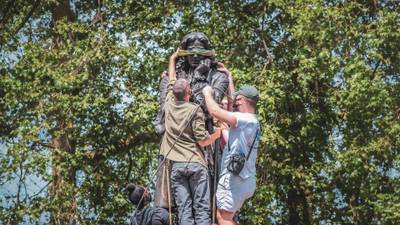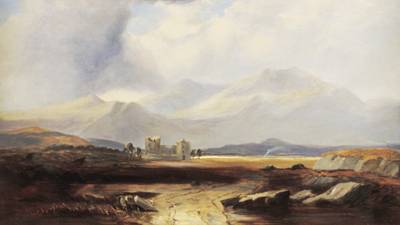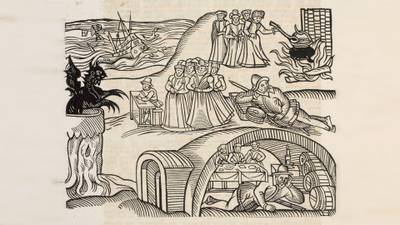Learn the techniques that ethnographers use in their social science research.
Ethnography is the methodical study of people and cultures. It brings you closer to your social world by giving you new insights into organisations, communities and customs.
Join our online ethnographic research methods course and:
- gain the core skills of participant observation, taking field notes and interviewing
- explore the ethics of research and how to analyse what you’ve discovered
- learn how to critique and use published ethnographic research in your own work.
Who is this online ethnography course for?
This distance-learning ethnography course is ideal for anyone involved with social research professionally, or if you’re simply interested in learning more about anthropology, social science or ethnography.
What you’ll study
You’ll learn the very best ethnographic research methods in an innovative ‘core skills’ format. The skills you learn here can be adapted to a wide range of other research settings.
You’ll develop a series of ethnographic skills across four course units:
- Introduction to ethnography. Discover the past and present of ethnography in the social sciences and learn about evidence in ethnography.
- Participant observation and ethics. Ethnography involves learning alongside the people you’re interested in, and participant observation is key to that. You’ll also cover approaches to research ethics in ethnography and the politics of research.
- Fieldnotes. Ethnographers write fieldnotes, and we explore the skills of effective fieldnote taking, together with a real-life exercise in ethnographic observation.
- Your ethnographic research. Find out how to begin writing up ethnographic research. Develop your research skills in interviewing, collaboration and data analysis. Start designing your own ethnographic project.
By the end of this course, you’ll be able to...
-
Define and describe what ethnography is.
-
Demonstrate skills in a range of ethnographic research methods.
-
Apply the methods you’ve learned to your own social worlds.
-
Sustain ethical positions in research.
-
Analyse ethnographic data.
-
Start designing your own ethnographic research project.
Choose the University of Aberdeen for online courses in ethnography

4th in the UK
We’re ranked 4th in the UK for anthropology and archaeology by the Guardian University Guide 2024.

Global research expertise
Our staff are involved in ethnographic research all over the world and bring their experiences directly to your teaching.

You’re in expert hands
We’ve been delivering online and distance learning for decades.
How you’ll study
Online learning
This distance learning ethnography course is delivered flexibly, 100% online.
You can learn with us anywhere in the world, no student visa required, and manage your study hours to suit you.
Your teaching
This course is taught at Masters level.
Teaching is delivered through MyAberdeen, our online Virtual Learning Environment (VLE). It holds all the materials, tools and support you’ll need in your studies. Take a look around MyAberdeen.
You can access your learning materials on computer, smartphone and laptop, 24 hours a day. Each week, you’ll access a range of resources created specifically for this course, including:
- video lectures and thematic discussions
- reading materials covering contemporary approaches and classics of the field
- supplementary material, handpicked for you by experienced anthropologists
- online one-to-one tutor support
- portfolio space to develop your work and communicate with other students
- the online resources of our award-winning Sir Duncan Rice Library.
Your tutors
This course is delivered by our School of Social Science.
You’ll learn from a team of experienced anthropologists. You’ll benefit from their first-hand experience in carrying out ethnographic research across Europe, South America, Central Asia and the Canadian Arctic.
A dedicated senior course tutor will be on hand to provide you with week-by-week guidance to the resources. They’ll also provide individual feedback on the work you submit.
This course is assessed entirely online via four pieces of writing:
- Analysis of a published piece of ethnographic research, 500 words (15% of your mark)
- Discussion of ethics and politics in ethnographic research, 500 words (15%)
- Fieldnotes – an ethnographic description of a real-life setting, 500 words (15%)
- An essay on ethnographic methods, 1500 words (55%)
These pieces of written work will have set deadlines, one for each unit of the course.
The course totals approximately 150 hours of study and assessment time. That’s around 10 – 15 hours per week.
This is an indicative guide to the time required for a typical student at this level to achieve the learning outcomes. This includes time for independent study, as well as teaching and assessments.
You can largely set your own study hours each week to cover the materials. MyAberdeen is available 24/7, so you can log in and study when it suits you.
Activities at fixed times
There may be some activities scheduled for fixed times. This could include coursework and assessments with deadlines, or online meetings with your tutor. Otherwise, you can access and work through the course at your convenience.
Our first-class support structure will ensure that you aren’t alone in your studies. You’ll have contact with your course coordinator throughout your course. This could be by email, MyAberdeen, online call, or phone. You can use social media and discussion boards to chat with your fellow students too.
We provide a wide range of services to support you in your studies and beyond:
- Careers and Employability Service
- Disability support
- IT support
- Library support
- Student Support Service – help with finances, stress, wellbeing and non-academic issues
- Student Learning Service – study support, with advice sessions available via phone or Skype
- Aberdeen University Students’ Association (AUSA) – run by students for students
- Toolkit – clever apps and free training that can make your study life easier
Wherever you are in the world, you’ll feel part of our very special Aberdeen learning community.
Your teaching team
Dr Jo Vergunst – Your course coordinator
Dr Vergunst is Head of the Department of Anthropology and teaches ethnographic methods for postgraduates. Jo’s research is about people’s experiences of the landscape and he carries out fieldwork in Scotland on land use, walking and cultural heritage. He’s especially interested in the connections between anthropology and creative practice.
View Jo’s profileDr Maggie Bolton
Dr Bolton teaches ethnographic methods to undergraduates and research design to postgraduates. Her research involves fieldwork in the high Andes of southern Bolivia, where she has worked on mining, human-animal relations and indigenous movements. Her current research project is archival, linking Scotland to Bolivia through the lives of 19th-century migrants.
View Maggie’s profileDr Johan Rasanayagam
Dr Rasanayagam has conducted extensive fieldwork in Uzbekistan, Central Asia, where his doctoral dissertation examined the themes of the state and citizenship. He is currently developing research interests in the category of religion and the secular in Muslim contexts, including new fieldwork in Morocco.
View Johan’s profileDr Nancy Wachowich
Dr Wachowich’s ethnographic research is located mostly in the Canadian High Arctic. It draws on historical anthropology, visual anthropology, oral histories, museums and material culture. Her current research explores the dynamics of Inuit filmmaking, Arctic sewing and handicrafts, community digital archiving projects, colonial autobiographies and efforts to indigenise the internet.
View Nancy’s profileThe team behind this course has years of experience in ethnographic methods. We’re confident that it delivers brilliant training in this key area of social research.
Dr Jo Vergunst, course coordinator
Where this will take you
Carry out your own ethnographic research project
Keep growing your practice in ethnographic research with our follow-on project course.

Ethnographic Research Project
Put your new skills into practice and carry out your own project with expert support. 100% online, we’ll take you through all the stages of a successful small-scale ethnographic research project.
See our Ethnographic Research Project courseBuild your learning
You’ll earn 15 credits at Masters level (SCQF Level 11) with this course. You can use these credits towards further study. Find out more about credits.
You’ll also gain skills that will help you progress in your research career, including pathways into further postgraduate study.
Many postgraduate programmes, including PhDs in social science, require training in ethnographic research methods.
You may be interested in progressing towards our:
- MLitt Ethnology and Folklore – study on campus, full-time or part-time, or
- our social science degrees.
Careers
If you’re involved with social research, this unique short course will give you advanced skills and accreditation in ethnography. It will develop your skills in practising, commissioning, managing and evaluating social research within:
- the private sector
- government
- public bodies
- charities and voluntary organisations.
Your employer or professional institute may recognise this course for Continuing Professional Development (CPD). Talk to your employer or institute to find out more.

Free career support
Access our free careers service while you study.
- 1:1 appointments
- CV checks
- Interview prep
- Job opportunities
Entry requirements
Entry requirements
We welcome students from all over the world.
This course has no formal entry requirements. You do not need to provide proof of your qualifications.
But you do need to check the entry guidance above to understand the level of teaching delivered, to decide if this course is right for you.
If you do not have qualifications from the UK, check the equivalent teaching level for your country.
Visa requirements
You do not need a student visa to study online with us.
English language requirements
Teaching is delivered in English.
You do not have to provide proof of your English language skills to join this course. But we want to make sure that you can use English well enough to study successfully.
Recommended level of English
This course uses our Postgraduate Higher level of English language proficiency.
These are our Postgraduate Higher requirements, and these are minimum scores.
IELTS Academic, IELTS UKVI Academic, and IELTS Online (not IELTS Indicator or IELTS General Training)
- 6.5 overall
- 5.5 for listening and speaking
- 6.0 for reading and writing
TOEFL iBT and TOEFL iBT Home Edition
- 90 overall
- 17 for listening
- 21 for reading
- 20 for speaking
- 21 for writing
- TOEFL DI code is 0818
Cambridge English: B2 First, C1 Advanced, or C2 Proficiency
- 176 overall
- 162 for listening and speaking
- 169 for reading and writing
LanguageCert Academic/LanguageCert Academic SELT
- 70 overall
- 60 for listening and speaking
- 65 for reading and writing
LanguageCert International ESOL B2 Communicator (Written and Spoken) – Online / In-centre
- Overall High Pass
- 33 for listening, reading and speaking
- 38 for writing
Oxford ELLT Digital – English Language Level Test Online
- 7.0 overall
- 5.0 for listening and speaking
- 6.0 for reading and writing
PTE Academic (online test not accepted)
- 62 overall
- 59 for listening, reading, speaking and writing
Duolingo – tests taken from 1 July 2024 onward
- 120 overall
- 95 for listening and speaking
- 105 for reading and writing
University of Aberdeen English Pre-sessional Programme (PSE)
- Pass
- Valid for one year. Refresher can be offered if out of date
Pre-sessional academic English preparation programmes undertaken at other UK universities
- Pass at an equivalent of 6.5 (C1)
- B2 in all four skills
- Certification must be within one year prior to the start of your course
For more information about language qualifications see our English Language Requirements page.
You will need access to:
A computer (PC, laptop or Mac) operating on either:
- Windows 10 or later
- macOS 10.15 (Catalina) or later.
Most teaching materials are smartphone- and tablet-friendly. But we recommend a proper laptop or desktop for completing assignments comfortably.
Reliable internet access
We recommend:
- a wired connection
- a minimum download speed of 2 Mbps so you can take part fully in live sessions.
Speakers or headphones
- We recommend a headset with built-in microphone and earphones if you’re likely to study in an environment with background noise.
- A webcam is optional, but you may like to use one for some interactive sessions.
Software
We’ll give you access to Office365 applications. This means you can use online versions of Microsoft Word, Excel, and PowerPoint and install these programs on up to five personal devices.
If your course requires specialist software, we’ll provide you with access to this and a licence that lasts throughout your studies.
See our detailed IT requirements for more information.
When you study with us, you can expect a first-class support structure so that you’re never alone in your studies.
But learning online does mean you have to motivate yourself and manage your own time.
Your most important commitment will be time – the time to work through, reflect on and understand your teaching materials.
Before you start a course that involves a high degree of independent study, we recommend looking at the time you will be able to devote to your studies each week:
- Be realistic
- Create a weekly schedule as a guide
If you have any questions about studying online, get in touch with our friendly team. We’re here to help.
Fee payment
Your course fee needs to be paid in full before you start your course.
We accept payment via Visa Debit, Visa Credit and Mastercard.
Ways to save
You may be able to get help funding this course via:
- discounts – if any discounts are available for this course, they’ll appear in the section below
- employer sponsorship – we accept full and partial fee payments from sponsors.
Find out more about funding options.
Student card
All our students are entitled to a University of Aberdeen student card. This gives you access to a range of student discounts around the city and online.
This course has no formal entry requirements. You decide if it’s suitable for you.
The course is delivered at Masters level. At this level, you’d usually have at least:
- a 2:2 UK undergraduate degree (or equivalent), or
- relevant experience that supports this level of study.
Apply for this course





















